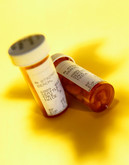Generics
Glenmark gains FDA approval for MS and pneumonia generics
In November 2018, Indian generics maker Glenmark Pharmaceuticals (Glenmark) announced the approval of generics for the treatment of multiple sclerosis (MS) and pneumonia.
Effectiveness of chronic hepatitis C treatment using direct-acting antivirals: real-life data
Hepatitis is an inflammation of the liver and can be caused by medications, toxins, severe alcohol use and other medical conditions. Hepatitis can also be caused by viruses, most commonly hepatitis A, B and C. Both hepatitis A and B can be dangerous, but there are effective vaccines against both viruses, however, there is no vaccines for hepatitis C [1].
FDA approves more generics in 2018 than any other year
The US Food and Drug Administration (FDA) approved 971 generics in 2018, more than in any previous year, according to the Activities Report of the Generic Drug Program (FY 2018).
Apotex having trouble with Competitive Generic Therapy exclusivity
In August 2018, the US Food and Drug Administration (FDA) approved its first drugs under the Competitive Generic Therapy (CGT) designation. The agency granted approval to several strengths of Canada-based Apotex’s potassium chloride oral solution (10% and 20%) [1]. Being the first to receive approval under the CGT designation meant that Apotex was eligible for a 180-day period of marketing exclusivity. However, the company is now having trouble with this exclusivity due to timing issues.
Higher generics use results in higher Medicare Part D star ratings
A study conducted by researchers from Auburn University and IMPAQ International has found that Medicare# Part D* prescription plans with higher generics use have higher summary star ratings and improved member experience [1].
Generics companies winning the legal battle in the US
Litigation in the US is clearing the way for generics competitors to enter the market. The latest cases include Spring Pharmaceuticals suing Retrophin for blocking generics of kidney stone drug Thiola (tiopronin) and the invalidation of Johnson & Johnson’s (J&J) patent on its prostate cancer drug Zytiga (abiraterone acetate).
Ensuring a stable supply of APIs in Japan
A stable supply of active pharmaceutical ingredients (APIs) is indispensable for a stable supply of finished pharmaceutical products (FPPs). It is also indispensable for promoting the use of generics, because API distribution issues can lead to generics shortages. For instance, of the 46 drug shortage problems that arose in FY2013, 21 were associated with API shortages [1]. These shortages can result in a perception among medical staff and patients that generic drugs are unreliable. Therefore, minimizing the risk of API shortage is crucial for promoting the use of generics.
Teva sues FDA for changing ‘first applicant’ definition for generics
There is yet another twist in the tale of generics of Allergan’s blockbuster dry eye treatment, Restasis (cyclosporine ophthalmic emulsion). The latest development has Israeli generics giant Teva Pharmaceutical Industries (Teva) suing the US Food and Drug Administration (FDA) for changing its policy on eligibility for 180-day marketing exclusivity for generics.
Brazil to remove backlog for generics
Brazilian Health Surveillance Agency (Agência Nacional de Vigilância Sanitária, ANVISA) announced on 3 October 2018 that it will eliminate a backlog of new and generic drug applications by January 2019.
Individual pathways for development of complex generics
The downside of having clear regulatory standards for approval of pharmaceuticals, according to Rodrigo Cristofoletti from Brazil’s Health Surveillance Agency (Agência Nacional de Vigilância Sanitária, ANVISA), is the overuse of one-size-fits-all (OSFA) approaches [1]. Although such approaches ensure harmonization throughout the regulatory decision-making process, they may not be adequate for all cases, and especially not in the case of complex generics.












